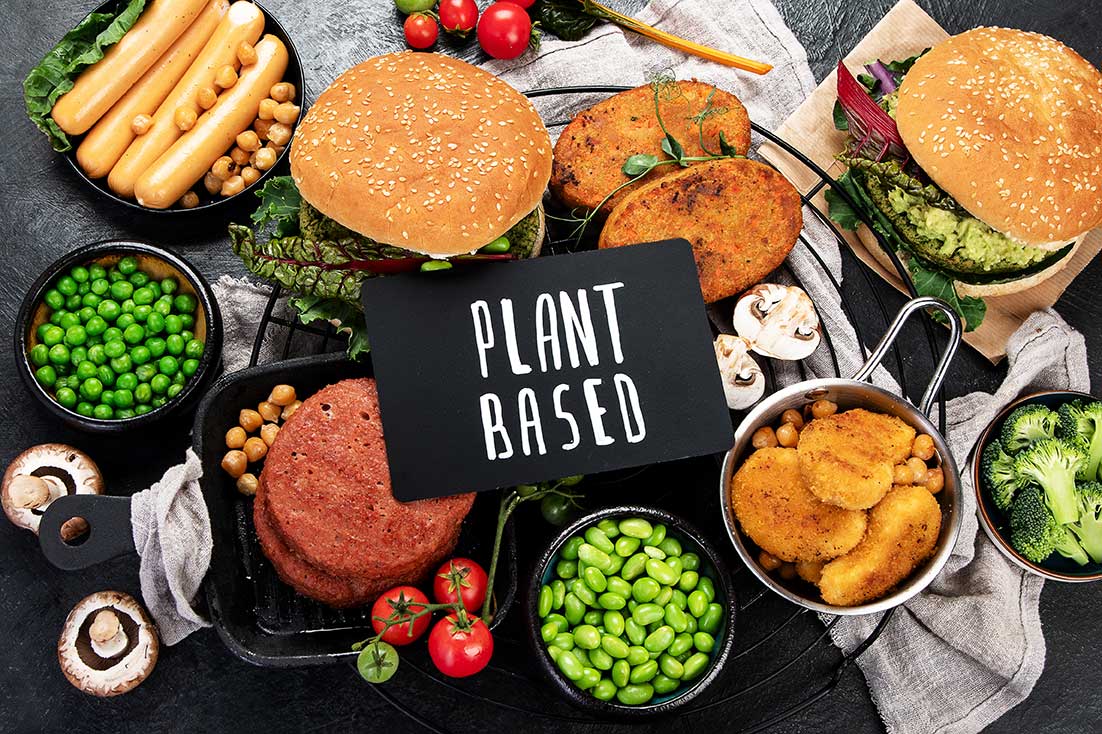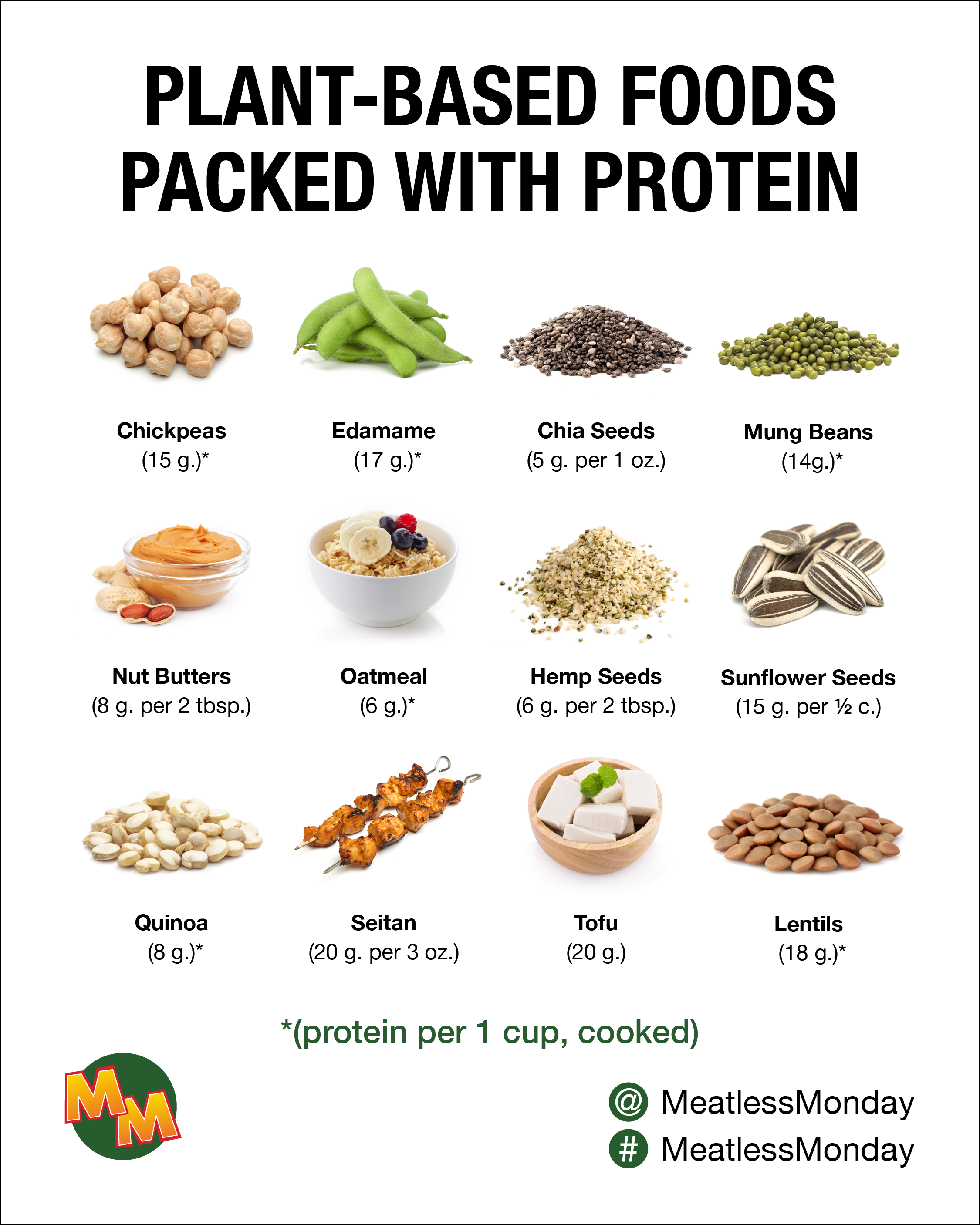How Gluten Free BBQ Sauce Elevates Your Vegan Grilling Game
How Gluten Free BBQ Sauce Elevates Your Vegan Grilling Game
Blog Article
All Regarding Healthy Food: Benefits of Enjoying Plant Based Alternatives
The discussion surrounding plant-based diet plans has acquired substantial focus recently. Many people are discovering the potential wellness benefits, dietary benefits, and environmental effects connected with these dietary options. As people end up being much more knowledgeable about their food's impact on health and sustainability, concerns occur concerning the usefulness of embracing such a way of life. What certain changes can one anticipate, and exactly how might these selections improve not only individual health however also the earth's future?
Recognizing Plant-Based Diet Plans
Numerous people link plant-based diets mostly with vegetarianism or veganism, these diet regimens can incorporate a broad variety of eating patterns that focus on entire, minimally refined plant foods. Such diet regimens frequently include fruits, vegetables, entire grains, seeds, nuts, and beans, while restricting or eliminating animal items. This versatility enables people to customize their dietary options according to dietary needs and individual choices. Some might adopt a mainly plant-based diet regimen while still sometimes consuming meat or dairy products, often referred to as a flexitarian approach. The emphasis stays on incorporating even more plant foods, which can result in a varied selection of tastes and meals. Comprehending these different interpretations of plant-based eating is vital for appreciating its availability and allure in modern food culture.
Health Benefits of Plant-Based Foods
The wellness advantages of plant-based foods are substantial, offering a nutrient density advantage that supports total well-being. Research suggests that these foods can boost heart wellness and play a crucial duty in effective weight administration. By including much more plant-based choices, individuals might improve their nutritional choices and promote long-term health and wellness.
Nutrient Density Benefit
Nutrient density plays an important duty in the wellness advantages of plant-based foods, making them a compelling selection for those looking for a balanced diet plan. Plant-based foods, such as fruits, vegetables, legumes, nuts, and whole grains, are typically rich in important vitamins, minerals, and antioxidants while being lower in calories. This high nutrient density allows individuals to eat fewer calories while still meeting their dietary requirements. Furthermore, these foods are packed with dietary fiber, advertising digestive system wellness and helping in weight monitoring. By incorporating nutrient-dense plant-based choices, customers can enhance their total health and wellness, support their body immune systems, and lower the risk of chronic diseases. Inevitably, the nutrient density of plant-based foods underscores their importance in a health-conscious lifestyle.
Heart Health And Wellness Renovation

Weight Administration Support
Along with advertising heart wellness, a plant-based diet plan can significantly aid in weight management. This nutritional strategy highlights entire foods such as fruits, veggies, legumes, nuts, and entire grains, which are normally lower in calories and higher in fiber contrasted to animal-based products. The high fiber web content aids boost satiation, decreasing total calorie intake. Plant-based diet plans are usually abundant in necessary nutrients while low in undesirable fats, making it much easier to keep a healthy and balanced weight. Study shows that individuals who embrace a plant-based way of living tend to have lower body mass indexes (BMIs) and experience more successful weight management compared to those that eat meat-heavy diet regimens. As a result, welcoming plant-based choices is a tactical option for reliable weight management
Nutritional Value of Plant-Based Ingredients
Plant-based components are rich in crucial nutrients, supplying a varied selection of vitamins, minerals, and anti-oxidants that add to overall health and wellness. A comparison of healthy protein resources exposes that while pet products are usually watched as remarkable, several plant-based choices provide ample healthy protein and other advantageous compounds. Understanding the nutritional worth of these active ingredients can aid individuals make notified dietary options.
Important Nutrients in Plants
Nutrient-rich components discovered in plants offer a varied variety of crucial nutrients that contribute substantially to overall health. These active ingredients are abundant in vitamins A, C, and K, which sustain immune function, vision, and blood clot, specifically. In addition, plants offer important minerals such as magnesium, calcium, and potassium, vital for heart health and wellness, muscle feature, and bone stamina. The visibility of fiber in plant-based foods help digestion and advertises a healthy digestive tract microbiome. Antioxidants, found generously in vegetables and fruits, assistance fight oxidative tension and reduce swelling. Additionally, lots of plant foods are low in calories yet high in nutrients, making them a superb option for those looking for to maintain a healthy and balanced weight while guaranteeing excellent nutrient intake.
Contrasting Healthy Protein Sources
Healthy protein resources Home Page differ significantly in their nutritional accounts, with plant-based components supplying unique benefits. Unlike animal proteins, which often contain hydrogenated fats and cholesterol, plant healthy proteins have a tendency to be reduced in these undesirable elements. Legumes, nuts, seeds, and whole grains are rich in crucial amino acids, fiber, vitamins, and minerals. For circumstances, lentils supply high protein content together with considerable iron and folate, while quinoa is a complete healthy protein, using all nine vital amino acids. In addition, plant-based proteins are frequently come with by anti-oxidants and phytochemicals that sustain total health. The change to plant-based healthy protein sources not only boosts nutritional intake however also aligns with lasting nutritional methods, minimizing environmental impact and advertising long-lasting wellness advantages.
Ecological Impact of Plant-Based Consuming
As awareness of climate modification grows, numerous people are discovering sustainable nutritional selections that can greatly lessen their environmental impact. Plant-based eating has emerged as a considerable contributor to lowering greenhouse gas exhausts, which are primarily connected with livestock manufacturing. The farming of fruits, veggies, vegetables, and grains usually needs less resources, such as water and land, contrasted to animal farming. Furthermore, plant-based diet regimens can cause lowered deforestation, as much less land is required for grazing livestock or expanding pet feed. By moving in the direction of plant-based choices, consumers can support biodiversity and promote healthier environments. On the whole, accepting plant-based eating not just benefits personal health and wellness but also represents a crucial action toward ecological sustainability and preservation efforts.
Overcoming Common Misconceptions
While lots of individuals recognize the benefits of a plant-based diet regimen, several misconceptions frequently discourage them from totally accepting this way of living. An usual belief is that plant-based diet regimens lack enough healthy protein; however, many plant sources, such as legumes, nuts, and tofu, supply enough healthy protein. Additionally, some think that this diet plan is pricey, when as a matter of fact, staples like beans, rice, and seasonal vegetables can be quite budget-friendly. An additional misunderstanding is that plant-based eating is extremely limiting, whereas it really uses a diverse selection of foods and tastes. Numerous worry that a plant-based diet might lead to deficiencies, yet with correct preparation, people can obtain all required nutrients, including minerals and vitamins, while enjoying a vast selection of tasty meals. Vast Tips for Transitioning to a Plant-Based Way of living
Making the shift to a plant-based way of living can be an enhancing experience, though it usually needs some guidance to navigate the initial changes. Initially, people are encouraged to begin progressively, including even more fruits, veggies, vegetables, and entire grains into their meals while minimizing meat and milk intake. Dish planning is vital; preparing a regular food selection can aid ease the modification and protect against final unhealthy selections. Discovering brand-new dishes and cooking approaches can likewise enhance the experience and keep excitement regarding plant-based eating. In addition, joining support system or neighborhoods can offer inspiration and share valuable suggestions. Staying educated concerning nutrition assurances well balanced meals, avoiding deficiencies while cultivating a healthy and balanced, enjoyable plant-based lifestyle.

Delicious Plant-Based Meal Concepts
Discovering delicious plant-based dish ideas can influence individuals to embrace an extra healthy diet plan. One prominent choice is a hearty quinoa salad, including cherry tomatoes, cucumber, and a zesty lemon-tahini dressing. Another favorite is a full-flavored lentil stew, loaded with carrots, celery, and great smelling natural herbs, excellent for a soothing dinner. For breakfast, over night oats made with almond milk, chia seeds, and topped with fresh berries offer a nourishing beginning to the day. In addition, a vivid vegetable stir-fry with tofu and a variety of colorful veggies can be a fast yet satisfying meal. Luscious avocado salute on whole-grain bread, sprayed with seeds and spices, supplies a straightforward yet savory snack. These dishes display the range and splendor of plant-based consuming.

Often Asked Questions
Can a Plant-Based Diet Regimen Supply Enough Protein?
The question of whether a plant-based diet can give adequate protein prevails. Various sources, consisting of legumes, nuts, seeds, and entire grains, can satisfy healthy protein needs effectively, sustaining a healthy and balanced diet regimen for individuals.
Are Plant-Based Diet Regimens Appropriate for Kid?
The viability of plant-based diet plans for children depends upon careful preparation. Ample nutrients need to be guaranteed, consisting of minerals, vitamins, and proteins. With correct assistance, such diet regimens can support healthy and balanced growth and growth in children.
Exactly how Do I Eat Out on a Plant-Based Diet plan?
Eating in restaurants on a plant-based diet entails looking for restaurants with varied menus, requesting alterations, and exploring vegan-friendly choices. Preparation ahead and connecting dietary preferences can improve the eating experience while keeping nutritional choices.
What Are Typical Irritants in Plant-Based Foods?
Common allergens in plant-based foods consist of soy, gluten, nuts, and seeds - BBQ Sauces. Individuals following a plant-based diet plan must recognize these allergens and review tags carefully to avoid you can try this out negative responses and assure safe consumption
Can Plant-Based Diets Aid With Fat Burning?
Research indicates that embracing a plant-based diet plan may assist in fat burning as a result of its usually lower calorie density and higher fiber material. This mix can boost satiety, helping people handle their calorie consumption effectively. Lots of people associate plant-based diets mainly with vegetarianism or veganism, these diet regimens can incorporate a large variety of eating patterns that prioritize entire, minimally refined plant foods. Nutrient thickness plays a necessary function in the health and wellness advantages of plant-based foods, making them a compelling selection for those looking for a well balanced diet plan. Plant-based diets have been revealed to markedly boost heart wellness, as they commonly include aspects that support cardio function. In addition to advertising heart health and wellness, a plant-based diet can considerably assist in weight administration. A common idea hop over to these guys is that plant-based diet plans do not have adequate healthy protein; nevertheless, various plant sources, such as legumes, nuts, and tofu, provide enough protein.
Report this page